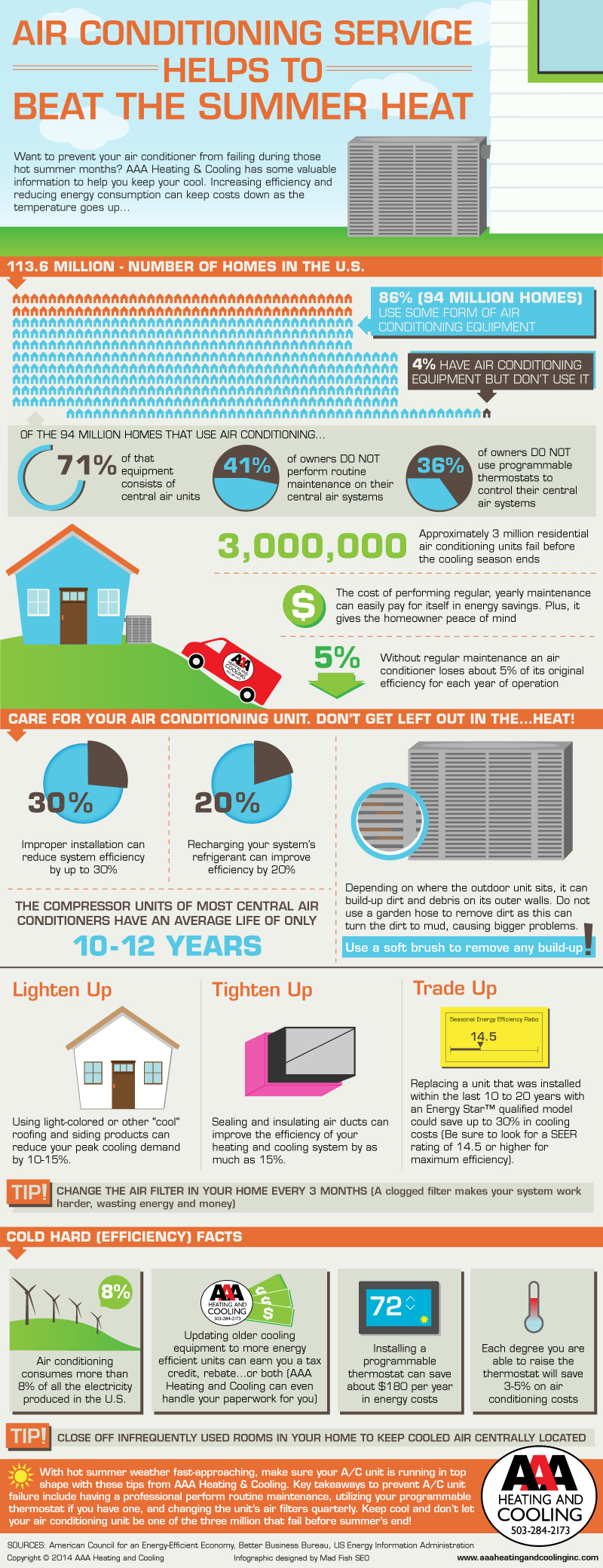Just How Weather Factors Impact Heatpump Operations And Practical Actions To Address These Obstacles
Just How Weather Factors Impact Heatpump Operations And Practical Actions To Address These Obstacles
Blog Article
Short Article By-Melendez Regan
When it involves your heatpump, weather plays a critical role in its performance. From freezing temperature levels to sweltering heat, each component can impact exactly how effectively your system operates. However what can you do to battle these weather-related challenges and ensure your heatpump is operating at its ideal? Stay tuned to uncover sensible suggestions and strategies to optimize your heatpump's efficiency, regardless of the weather it faces.
Weather Condition Aspects Affecting Heat Pump Effectiveness
Weather condition elements have a considerable influence on the effectiveness of heatpump. One important aspect is temperature level. Heat pumps function by transferring warmth from outside to inside during winter season and vice versa in summer. As temperature levels drop, it comes to be harder for the heat pump to essence heat from the outside air, minimizing its efficiency.
One more key element is humidity. High humidity levels can make it much more difficult for the heatpump to release warm during the cooling procedure.
Additionally, wind speed plays a role. Solid winds can dissipate the warm absorbed or launched by the heat pump, influencing its general efficiency.
Tips for Optimizing Heat Pump Efficiency
To boost the performance and longevity of your heat pump, executing a few vital methods can make a significant difference in its performance.
Firstly, ensure normal maintenance by cleaning or replacing filters every 1-3 months to prevent air flow blockages and make best use of airflow. In addition, routine yearly expert evaluations to identify and address any type of possible problems beforehand.
Ideal thermostat setups likewise play an important role. Throughout the wintertime, aim for a temperature setting that's as reduced as comfortable, and throughout the summertime, established it as high as comfortable to reduce the work on your heat pump. Utilizing a programmable thermostat can help you instantly adjust settings based on your routine.
Moreover, securing leaks in ductwork and protecting ducts in unconditioned rooms can stop energy loss and improve total system effectiveness.
Last but not least, consider installing a smart thermostat that can learn your practices and adjust setups as necessary, further maximizing your heatpump's efficiency. By adhering to these ideas, you can guarantee your heat pump operates successfully and efficiently throughout the year.
Best Practices for Weatherproofing Your Heat Pump
For ideal performance and effectiveness of your heatpump, implementing weatherproofing steps is important. Begin by securing any kind of voids or splits around doors, home windows, and ductwork to avoid warm loss and preserve a regular interior temperature level.
Protect exposed pipelines and air ducts to avoid freezing throughout cold weather and ensure correct air movement. Consider setting up a protective cover over the exterior unit to shield it from rough climate components like snow, ice, and debris.
On a regular basis clean the exterior device to eliminate dirt, leaves, and particles that can block air flow and decrease efficiency. Additionally, maintain the area around the heatpump free from snow, ice, and plant life to permit correct air flow.
relevant resource site
Since you comprehend exactly how weather impacts your heatpump efficiency, you can take proactive actions to optimize its effectiveness. By following https://venturebeat.com/2020/10/14/augury-raises-55-million-to-grow-its-predictive-maintenance-platform/ detailed in this article, such as normal maintenance, thermostat changes, and weatherproofing steps, you can make certain that your heatpump runs at its ideal regardless of the weather. Remain ahead of the game and keep your home comfy all the time.
